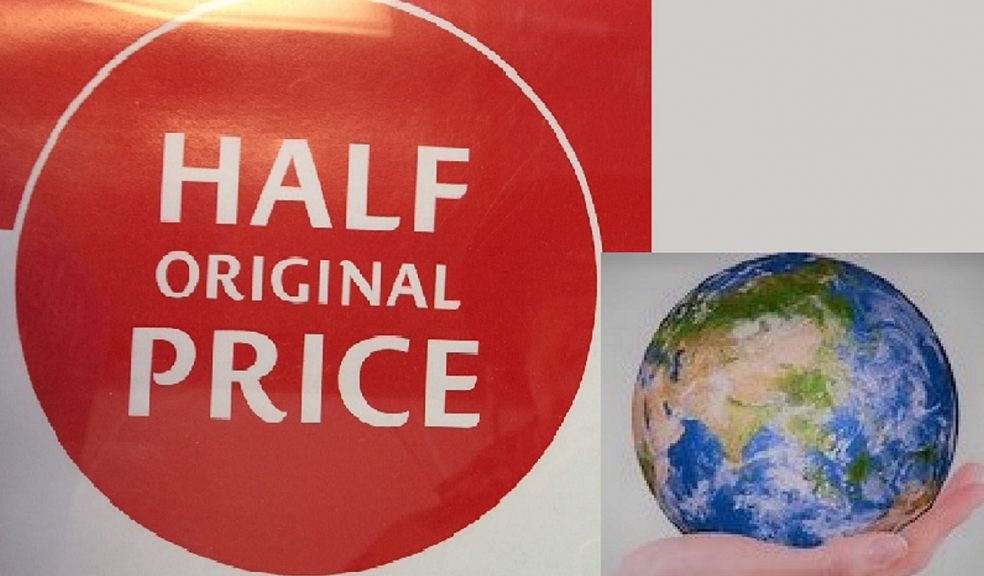
Consuming ourselves to the end?
Some people have called it a form of pornography or prostitution. Others say it is the world’s fastest growing religion. Most of us happily engage in it without question.
I am talking about ‘Consumerism’ – attaining in excess of what is needed for sufficiency in life, and building our lifestyles around it.
Originally the Latin word consumare meant to finish or conclude - the end or termination of something. In health terms, consumption was a synonym for TB, often known as the wasting disease and a huge taker or destroyer of life.
So how can a word with such a negative past be such a driver for our behaviour today?
Part of the answer is that consumerist ideology is incessant in our current culture. We are continually under pressure to purchase material goods, through which we construct an understanding of who we are. Buying and acquiring ‘stuff’ is unchallenged, and we value ourselves more according to what we own than to what we do.
The global drive to turn us all into individualistic consumers over the past 30+ years has brought about a world of change. Markets have expanded enormously to generate jobs in line with the insatiable demand for new products. This has fuelled the global economy and seen immensely powerful corporations dominate the planet as they capture our wallets and our wills. We are sold unending forms of entertainment, IT, fashions, foods, cars, holidays and technologies.
Yet all of this has come at a cost. Whilst we consider the latest purchases or products, consumerism closes down our outlooks and affects our relationships. Addiction or obsession with mobile phones, for instance, surely changes how we relate to those around us – including family and friends.
Environmentally, consumerism draws on vast requirements of energy, mainly still supplied by fossil fuels. Land is lost to cash crops, commercial developments, transport systems. Air quality becomes dangerously threatening to human health – and the decline in fresh water sources is a global calamity.
Ultimately, what consumerism does is to push us to try to nourish our deeper selves through what we buy. We are what we pay for – I shop therefore I am: ‘Tesco ergo sum’!
So, we have a society in which we compete for much and share little, which maximises profit but undermines community. The sharing of resources, ideas and trust which has marked civilisation is replaced by short-term and selfish material acquisitiveness.
The Romans used to provide ‘bread and circuses’ to appease the masses. These were effective distractions to prevent the population from becoming discontent and rebellious. Global capitalism today uses similar tactics.
Over-consumption of fast and poor quality foods may fill bellies temporarily but the long term health effects on us can be disastrous. Witness the rise of diabetes, obesity and poor mental well-being. Likewise, we are totally engrossed in a screen culture that keeps us entertained and amused, but which destroys relationships and fails to satisfy our deeper needs. Pervasive loneliness is a consequence of untold social alienation. When song writer Garth Hewitt used the phrase ‘we’re amusing ourselves to death, giggling as we go’, it’s actually more serious than funny.
So, if we are not diligent, we end up consumed by a world in which we care only about our own selves for the immediate future, and devalue our planet through our greed. We do not question the powers behind our culture or the causes of the ills we face. We move from fix to fix, caught in the headlights of consumerism while social winners systematically manipulate us into becoming perpetual losers and failures. We are de-energised and unmotivated to challenge what is happening to our community life.
What might be healthier for us and the planet is to ask ourselves questions such as: what really fulfils our lives as a species? What are our deeper aspirations? Who or what should we compassionate about and care for? How may we grow as people in ways which do not victimise others or destabilise the Earth?
Or, to reflect from a wider perspective, we know what Consumerism does for us, but what does it do to us…?

















